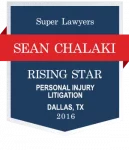Are you tired of insurance companies putting profit over your well-being? You pay your premiums every month, expecting your insurer to support you when you’re in need. But when that moment comes, they turn their backs on you, delaying, denying, and deceiving. It’s a frustrating, infuriating ordeal that countless individuals face daily.
Don’t worry. This guide gives you 10 strategies to hold insurers accountable for bad faith practices. We’ll guide you through essential steps to sue insurance companies for bad faith.
This isn’t just another run-of-the-mill “how to” guide. We empathize with the emotional and financial impact of insurance companies on you. We created this resource to give you the knowledge and tools to fight for fair treatment.
What are Bad Faith Claims?
You have probably heard about bad faith insurance. But, what is bad faith insurance really? Bad faith claims refer to situations where an insurance company fails to fulfill its obligations to policyholders in a fair and reasonable manner. These bad faith arguing can arise when an insurer unreasonably denies a valid claim, delays payment without justification, or acts in a dishonest or deceptive manner. To successfully sue an insurance company for bad faith practices, it is crucial to understand the strategies that can be employed. By familiarizing oneself with these strategies, policyholders can navigate the legal process more effectively and increase their chances of obtaining the compensation they deserve.
What are Bad Faith Practices by Insurance Companies?
To navigate insurance, know bad faith practices. Insurance firms must act in good faith to protect policyholders and handle claims. Some companies use unfair tactics to avoid paying claims or delay the process. Identifying bad faith practices is the first step in holding insurance companies accountable. Here are some common examples:
Denial of Valid Claims – Insurance companies are obligated to pay valid claims promptly. However, some may unreasonably deny or delay claims without proper justification. This can leave policyholders frustrated and financially burdened.
Unreasonable Delays – Insurance companies should process claims within a reasonable timeframe. If they unreasonably delay investigations or payments, it may be seen as bad faith.
Inadequate Investigation – Insurance companies have a duty to thoroughly investigate claims before making decisions. If evidence is missed or an investigation is done poorly, policyholders may suffer.
Lowball Settlement Offers – Insurers undervalue claims, make low offers, resulting in bad faith.
Policy Misrepresentation – If insurance companies lie about policy details when you apply or make a claim, it’s bad faith.
Intimidation and Harassment – Some insurance companies resort to aggressive tactics to intimidate policyholders into accepting unfair settlements. It can involve invasive review of records, harassment, or threats.
To handle bad faith practices, know your rights as a policyholder well. It’s important to gather evidence, document conversations, and seek legal advice if necessary.
How to File a Bad Faith Insurance Claim?
When facing bad faith negotiation by an insurance company, the first step is to gather all relevant documentation. This includes the insurance policy, correspondence with the insurer, and any evidence supporting the validity of the claim. It is also important to keep a record of all interactions with the insurer, including dates, times, and the names of representatives spoken to. This documentation will serve as crucial evidence in building a strong case against the insurer. Additionally, consulting with an experienced attorney is highly recommended to ensure that the policyholder’s rights are protected throughout the process.
How to Prove Bad Faith Insurance?
One way to confirm bad faith on the part of the insurer is to gather evidence of unreasonable delays or denials in processing the claim. This can be done by documenting any lengthy periods of time where the insurer failed to provide a decision or payment, despite having all necessary information. Additionally, if the insurer consistently ignores or dismisses valid evidence supporting the claim, it further strengthens the case for bad faith.
Why Do You Need to Consult an Attorney?
Seeking advice from a qualified lawyer who is experienced in insurance bad faith cases can serve as a valuable resource to validate the existence of bad faith on the part of the insurance company. With their knowledge and skills, these attorneys can thoroughly assess the evidence presented and offer valuable insights into the various legal avenues available to hold the insurer accountable for their actions.
Furthermore, engaging the services of an attorney can prove invaluable in navigating the intricate legal procedures that often accompany such cases. By advocating on behalf of the policyholder, an attorney can skillfully negotiate with the insurance company to secure a just and equitable resolution. Their presence adds an extra layer of protection and ensures that the policyholder’s rights are safeguarded throughout the process.
Can You Sue Your Insurance Adjuster?
While it is possible to sue your insurance adjuster, it is important to note that it is generally more common to take legal action against the insurance company itself. This is because insurance adjusters are typically acting on behalf of the company and following their instructions. However, if you believe that the adjuster acted in bad faith or negligently, you may have grounds for a lawsuit. It is recommended to consult with a lawyer experienced in insurance law to determine the best course of action.
How to Build Your Case and Gather Evidence?
Building a strong case for insurance bad faith requires gathering evidence that supports the policyholder’s claim. This evidence can include documentation of communication with the insurer, such as emails or letters, as well as any relevant policy documents or coverage denials. Additionally, collecting witness statements or opinions can further strengthen the case by providing additional perspectives and credibility.
For example, let’s say you were involved in a car accident and filed a claim with your car insurance company. Your claim got denied and you were informed about it. However, what insurance adjusters won’t tell you is the reason for your denied claim. In order to build a strong case for insurance bad faith, you would need to gather evidence that supports your claim. This could include keeping all communication with the insurer, such as emails or letters, as well as any policy documents or coverage denials they provided. Additionally, if there were any witnesses to the accident or professionals who can provide their opinions on the situation, collecting their statements and opinions can further strengthen your case.
What Steps to Take When Calculating Damages?
- Start by consulting a car accident attorney to help you with all the necessary documents and computations to best support your claim.
- Next, gather all relevant documentation and evidence related to the damages you are claiming. This can include medical bills, repair estimates, and any other receipts or invoices.
- Organize all of the documentation in a clear and systematic manner, making it easy to reference and present as evidence.
- Consult with professionals if necessary to accurately assess the value of the damages. For example, you may need to hire a medical professional to evaluate your injuries or a professional appraiser to determine the cost of property damage.
- Calculate any financial losses that resulted from the incident, such as lost wages or income, additional transportation costs, or other expenses incurred as a direct result of the incident.
- Determine any non-economic damages that may be applicable.
Legal Proceedings
Once you have gathered all the necessary information and assessed the damages, it is important to consult with a lawyer to understand your legal options. They can guide you through on how to prove bad faith in court, the process of filing a lawsuit, if necessary, and help you navigate any negotiations or settlements with the responsible party or their insurance company. It is crucial to have legal representation to ensure your rights are protected and that you receive fair compensation for your losses.
A. Filing the Lawsuit
Filing a lawsuit can be a complex and time-consuming process, so having a lawyer by your side can greatly simplify and streamline the procedure. They will handle all the necessary paperwork, gather evidence, and build a strong case on your behalf. Additionally, a lawyer’s knowledge in personal injury law can increase your chances of success in court and maximize the potential compensation you may receive.
B. Discovery Phase
During the discovery phase, both parties exchange relevant information and evidence to build their case. This includes gathering documents, conducting depositions, and requesting information from the opposing party. It is an essential step in the legal process as it allows each side to understand the strengths and weaknesses of their case and make informed decisions about settlement negotiations or trial strategy. Having a lawyer during this phase can ensure that all necessary information is properly obtained and utilized to support your claim.
C. Trial and Post-Trial Actions
Once the discovery phase is complete, the case may proceed to trial. During this stage, both parties present their arguments and evidence to a judge or jury, who then make a final decision on the outcome of the case. Following the trial, there may be post-trial actions such as filing appeals or seeking enforcement of the court’s judgment. These actions are crucial in ensuring that justice is served and that any necessary remedies or damages are awarded.
Conclusion
In conclusion, gathering evidence is crucial in knowing how to sue an insurance company for bad faith. It is important to keep all communication and documentation related to the claim, as well as seek statements from witnesses or experts. Additionally, understanding the process of calculating damages can also be beneficial in resolving the dispute.













